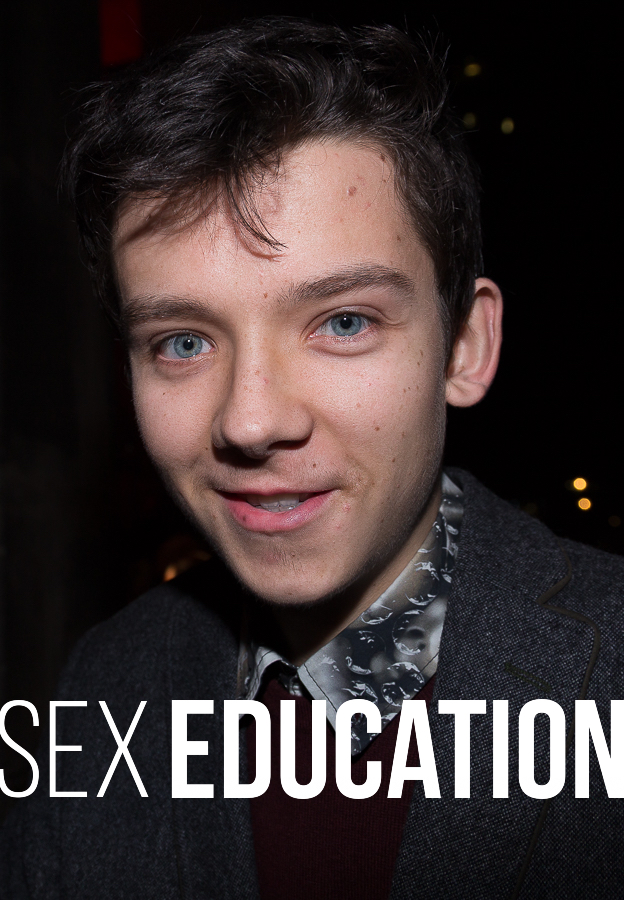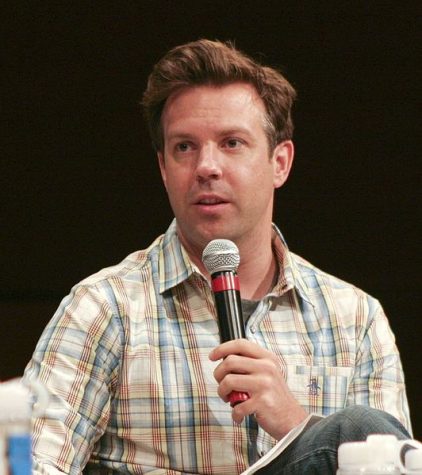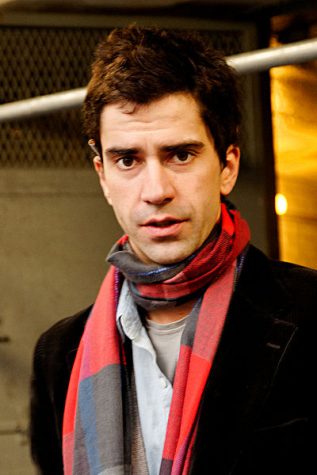“Sex Education” season three maintains charm and lives up to hype, continues to push boundaries
Gracie Watt / Hilltop Views Mashup
Asa Butterfield (above) stars as Otis, an awkward teenage boy who makes money from giving his peers sex advice, in Netflix’s “Sex Education.”
Season three of Netflix’s “Sex Education” dropped last week, with the students at Moordale Secondary returning to what has become known as the “sex school” for another year of drama, risque stunts and complicated relationships.
But there’s a new sheriff in town with the introduction of Hope Haddon (Jemima Kirke), the school’s new head teacher. She implements strict regulations — (including uniforms, shaming punishments and abstinence-only sex education courses — in an attempt to clean up the school’s image. She is met with resistance from the students, who come together to make this season one of the most intricate, exciting ones yet.
The show is known for its ability to depict real-life situations without the romanticization that is often seen in other teen shows. In season three, they go further than in the previous seasons, breaking away from only illustrating sex and relationship issues. Some of the most compelling storylines of the new season are the ones dealing with mental health issues. Aimee’s (Aimee Lou Wood) PTSD from being sexually assaulted in season two sends her to therapy with Jean (Gillian Anderson) while she struggles to connect with her doting boyfriend Steve (Chris Jenks). Ola’s (Patricia Allison) grief from her mother’s death causes her to distance herself from her friends and family. Perhaps most earnestly, Lily’s (Tanya Reynolds) depression is beautifully depicted in her mournful removal of all alien paraphernalia from her room in a sad, bleak process, rather than in the clichéd fit of rage.
That’s not to say that season three doesn’t still perfectly portray issues surrounding sex and relationships. In a surprising plotline, Jackson (Kedar Williams-Sterling) questions his sexuality when he finds himself attracted to the new student Cal (Dua Saleh), who is non-binary. Maureen (Samantha Spiro) explores her newly-single lifestyle while continuing to feel stuck. In one of the engaging and comical — while simultaneously heartbreaking — stories, Adam (Connor Swindells) struggles to accept his homosexuality, which threatens his relationship with Eric (Ncuti Gatwa).
As the many characters’ plot lines develop, the attention is drawn away from what had been the main story: the will-they-won’t-they relationship between Otis (Asa Butterfield) and Maeve (Emma Mackey). After yet another miscommunication at the end of season two, the love triangle (love cube?) feels tired and hackneyed. The web of stories among the side characters is far more interesting and refreshing, causing the once-popular main couple to feel like a waste of screen time.
Already a slightly absurd dramatization of real-life problems, this season takes the implausibility to a new level. While Mr. Groff (Alistair Petrie) was an unlikeable bully in the Headmaster’s chair, Hope morphs the role into a Mrs. Trunchbull-esque caricature of school principals, enforcing draconian punishments on students who she believes are perverting the school’s image: Lily is forced to wear a shame sign and face ostracization from her peers after publishing a raunchy alien-sex short story. Otis, who last season was an anxious, inexperienced loner, is thrust into “The Untouchables” when he starts sleeping with the most popular girl in school (Mimi Keene).
Although at times it appears outlandish, the over-the-top nature of this season enhances the appeal of the show. While being an accurate depiction of teenagers’ anxieties and insecurities, the characters in the show react to these situations how we would want to react. Instead of responding with bored apathy, or pulling out their phones and posting to social media about their discomfort with new school policies, students at Moordale decide to infiltrate the school’s reopening with a video of all of them dressed up as various genitalia, singing about how proud they are of their erotic reputation.
What the show continues to do extremely well is portray a wide range of subjects in funny, emotional and shocking ways. Its excellence stems from beautiful performances by a brilliantly casted group of actors who are unafraid to take each scene to the next level, unabashedly putting their entire hearts into its execution.
It’s no surprise that the show is one of Netflix’s most popular shows, with an approval rating of 96% on Rotten Tomatoes. Despite the immense pressure to hold on to that widespread adoration, “Sex Education” season three exceeds expectations and successfully maintains the same level of charm and wit that was present in the first two seasons.
Rating: 4 goats out of 5












